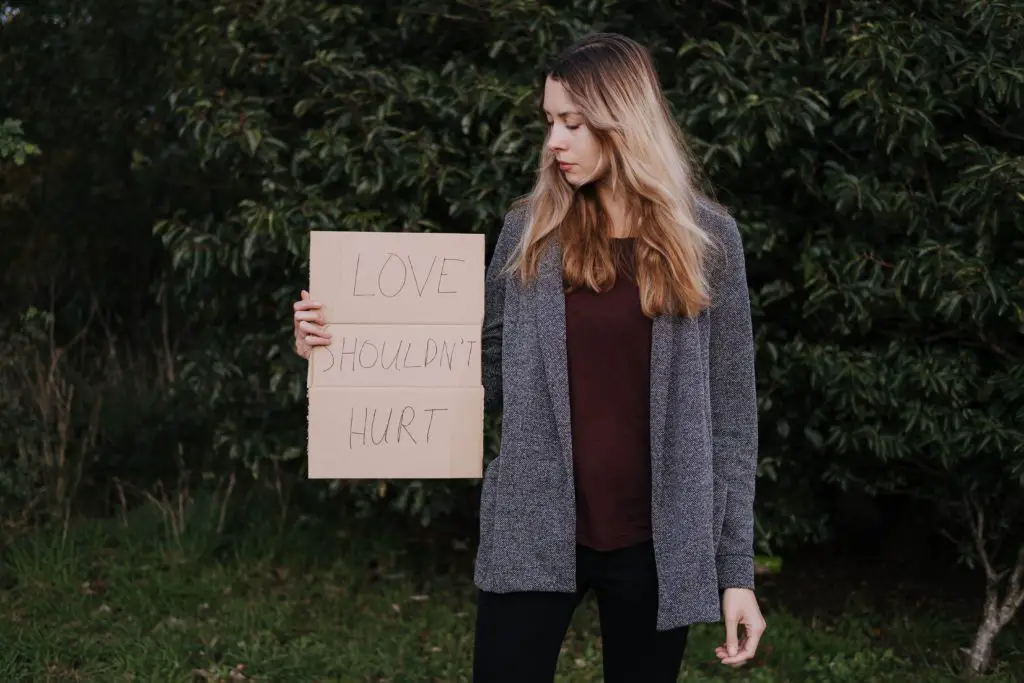Trauma bonding can be a confusing and stressful experience. Here are 12 indicators that you might be experiencing if you’re not sure.
What is Trauma Bonding?
Trauma bonding is a word used to explain the phenomena of developing a strong emotional connection with an abusive or emotionally draining person. Even in the face of severe mistreatment, this bond may be so deep that it is challenging to escape the abuser. When a victim of Stockholm Syndrome begins to connect with and even feel sympathy for their captor, this is known as trauma bonding.

Table of Contents
What Symptoms Indicate Trauma Bonding?
A sort of attachment known as trauma bonding can develop between two individuals who have shared a terrible experience. Being emotionally reliant on one another as a result of this kind of attachment can be extremely harmful.
When people are Experiencing Trauma Bonding, it’s common for them to grow overly devoted. They can believe they are the only ones who can relate to each other and that they are compelled to be together.
In order to cope with the trauma, the two persons may also develop some undesirable coping strategies. This may involve engaging in self-destructive habits or abusing alcohol or other drugs.
Trauma bond victims may try to justify the abuser’s actions and develop feelings of loyalty, appreciation, and even compassion for the abuser. The relationship is frequently strengthened by the abuser’s inconsistent reward of positive interactions and negative conduct.
There are a few indicators to watch out for if you are concerned that you and someone else may have a trauma bond.
- There is a lot of drama in the relationship.
- a sense of being unable to exist without the other person
- feeling like you are walking on eggshells
- excessive ties to the abuser
- having the impression that only the abuser can relate to you
- unhealthy coping techniques, such as abusing alcohol or drugs or engaging in self-destructive activities
- Feeling responsible for the abuser’s behavior
- Thinking that the only way to stop the abuse is to comply with the abuser’s wishes
- a sense of helplessness and depression
- a feeling that your relationship is “special” or “unique”
- decision-making and boundary-setting challenges
- Despite the violence, finding it difficult to leave the relationship
Please keep in mind that this is not an exhaustive list and that there are numerous more indicators that may potentially be related to the trauma bond. It’s crucial to get assistance from a therapist or reliable friends or family members if you think you might be involved in a trauma bond. They may assist you in gaining self-confidence, comprehending the characteristics of the relationship, and figuring out healthy ways to end the relationship.

What Triggers Traumatic Bonding?
Several factors, such as the following, can contribute to trauma bonding:
- Abusers frequently have more influence and power over their victims in abusive relationships, which are frequently characterized by power imbalances. The victim may find it challenging to end the relationship as a result.
- Isolation: Abusers frequently attempt to cut off their victims’ access to friends, family, and other support networks. As a result, the victim may find it more difficult to leave the relationship and may come to depend even more on the abuser.
- Gaslighting and love bombing are two examples of emotional manipulation techniques that abusers may employ to establish control over their victims. The victim may feel unsure and conflicted about their own experiences as a result, which may increase their likelihood of staying in the relationship.
- Trauma history: Someone who has experienced trauma in the past, such as abuse as a child, may be more susceptible to trauma bonding. They could find it more difficult to spot violence and to end an abusive relationship.
- Abusers often use a system of intermittent reinforcement in which they switch between being friendly and abusive, As a result, the victim may find it more difficult to anticipate the abuser’s conduct and may become more dependent on the abuser.
- Fear: It may be more difficult for the victim to leave an abusive relationship if they are afraid of the possible repercussions, such as financial, physical, or emotional abuse.

There are numerous additional elements that can support trauma bonding. One of the most frequent is when the victim of abuse or trauma starts to believe they are to blame for the abusive behavior. This may be the result of a variety of factors, such as the abuser telling the victim that they deserve it or that they brought it on themselves. The victim may also believe that they are the only ones who can intervene or resolve the issue, leading them to get invested in pleasing the abuser.
The abuse cycle is a significant factor in Experiencing Trauma Bonding as well. The victim may start to think that the only way to stop the abuse is to comply with the abuser’s demands, in which case they grow more submissive. When the victim understands they can do nothing to stop the abuse, they may feel helpless and hopeless as a result of their compliance. Consequently, the trauma bond may be strengthened.
How Can One Remove Themselves From a Trauma Bond?
Trauma attachments are extremely challenging to escape from. They frequently exhibit strong emotions of love, dependence, and obsession. Because of this, it is crucial to comprehend the mechanics of a trauma bond before entering into any form of relationship. There are a few steps you can take to free yourself if you believe you may be trapped in a trauma bond.
It might be challenging to break free from a trauma bond, but it is doable with the right support. Here are some steps that can be helpful:
Recognize the relationship as abusive: It’s critical to realize that you’re in a dangerous and extremely unhealthy scenario. Recognizing the abuse is the first step toward leaving, which can be challenging given the emotional bond that has grown.
Consult a professional: You can better grasp the dynamics of the relationship and create a strategy for leaving by speaking with a therapist or counselor. Additionally, they can offer tools and support to help with your trauma recovery.
Create a network of support: Be in the company of supportive individuals who will encourage you to end the relationship. This can include close friends, family members, and abuse survivors’ support groups.
Plan ahead: Making a strategy before leaving an abusive relationship is crucial because doing so might be dangerous. This can involve going somewhere safe, having a reliable contact to call for assistance, and gathering valuables like cash and critical papers.
Look after yourself: It’s crucial to look after your physical and mental needs when leaving an abusive relationship because it can be traumatizing. Take care of yourself and do things that make you happy and fulfilled.
Learn to set boundaries. You can break the bond with the abuser by establishing clear expectations for appropriate behavior, communicating those expectations to the abuser, and being prepared to enforce your boundaries by ending the relationship if they are not met.
It’s crucial to keep in mind that ending an abusive relationship might be challenging and that success might not come immediately. Healing from the trauma might take time, even after you’ve left, so it’s vital to be patient with yourself and get help when you need it.
Don’t be afraid to ask for assistance if you’re prepared to free yourself. You can overcome anything if you have the correct resources and help.

What are The Risks of Not Breaking Free From a Trauma Bond?
Someone who is trapped in a traumatic relationship with another person runs the chance of experiencing a number of harmful consequences. They could continue to experience emotional and psychological abuse. The person runs the risk of becoming dependent on their abuser in an unhealthy way. This implies that they won’t be able to end the connection since they would grow emotionally and psychologically attached to their abuser. This could result in a lifetime of abuse and misery, which can be very destructive.
The possibility of the person re-traumatizing themselves is yet another possible outcome. This implies that they might go through traumatizing circumstances that are identical to or comparable to those in the initial trauma bond. The person runs the risk of having a distorted perception of reality. This indicates that they might begin to think the abuse is OK or that they deserved it.
The consequences of not releasing a trauma bond may be severe and prolonged. Among the dangers are:
Abuse will likely persist and possibly even get worse if the relationship is not ended. Further physical and emotional harm may result from this.
Future relationships may be challenging: Trauma bonding can make it challenging to establish trustworthy relationships in the future.
Self-esteem loss: Being in an abusive relationship can lower one’s sense of worth and self-esteem. This can make it more difficult to end the relationship and have an impact on one’s future confidence and ability to make wise judgments.
Maintaining other aspects of one’s life can be challenging because abusive relationships can also negatively impact one’s employment, education, and social interactions. This can result in instability in one’s career and finances.
Physical health problems: Abusive relationships can result in physical health issues such as chronic pain, sleeping troubles, and general ill health.
It’s crucial to keep in mind that the longer one stays in an abusive situation, the more difficult it may be to leave and the worse the outcomes may be. To end the relationship securely and start the recovery process, seek expert assistance and support.
It’s crucial to seek help if you notice any of these symptoms. Having a trauma bond can be a very harmful experience, therefore it’s crucial to obtain the help you need to recover.
